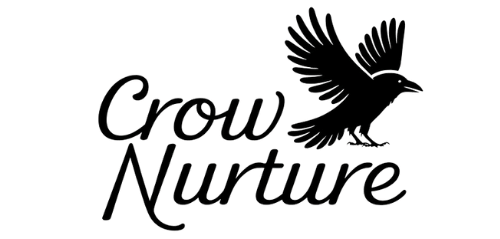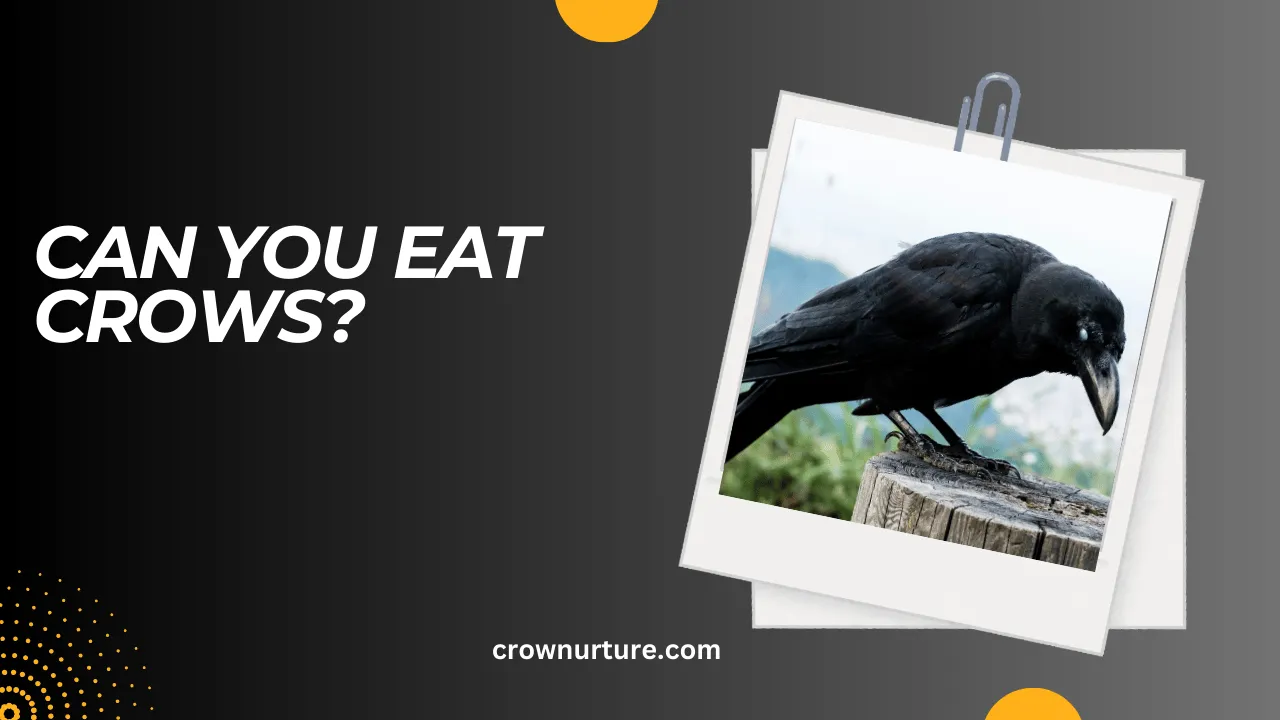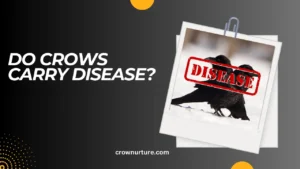Crows are among the most intelligent and resourceful birds in the animal kingdom, often admired for their problem-solving skills and adaptability. But for all their fascinating traits, there’s one question that most people have never seriously considered: can you eat crows?
While the idea might sound unusual or even repulsive to some, history shows that humans have turned to unexpected food sources during times of scarcity. Crows, being omnivorous scavengers, exist in abundance and might seem like a potential source of nourishment. But is it safe or even ethical to eat these birds?
This blog explores the unique topic of consuming crows, diving into the safety concerns, cultural views, legal regulations, and ethical questions surrounding the idea. Whether you’re a survivalist curious about alternative food sources or just someone intrigued by the unexpected, this article will provide the answers you seek.
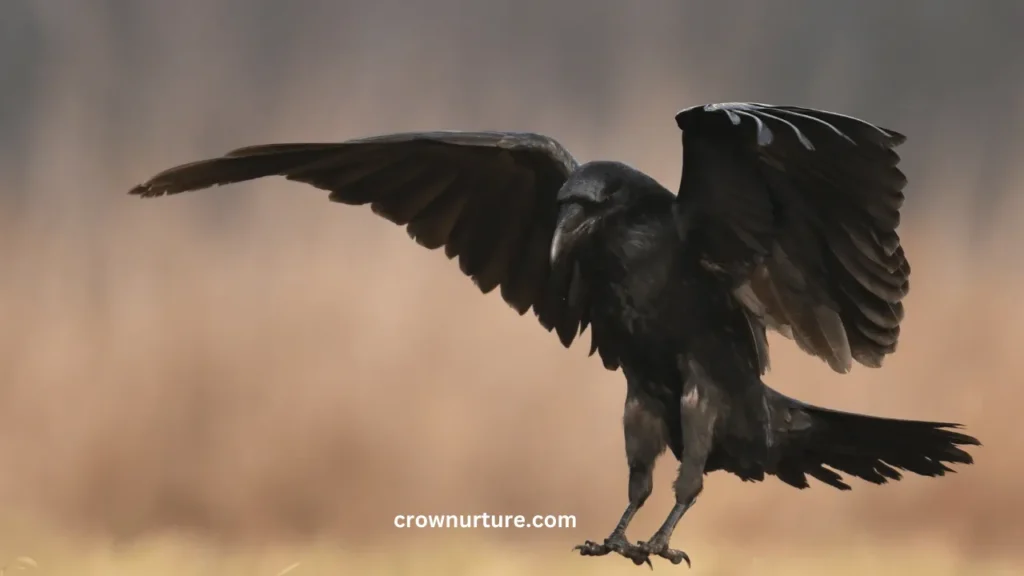
Contents
1. The Safety of Consuming Crows
Eating crows comes with several potential health risks due to their diet and scavenging habits. Crows often feed on carrion, trash, and other potentially contaminated food sources, increasing the likelihood of disease transmission.
Crows may also carry parasites and bacteria harmful to humans, such as salmonella or trichinella. Consuming improperly cooked crow meat could lead to serious health issues.
Furthermore, these birds may ingest toxic substances from polluted environments, such as pesticides or industrial waste, which could accumulate in their tissues and pose risks to human health if consumed.
2. Cultural Perspectives on Eating Crows
Historically, crows have been consumed in some cultures, often out of necessity during times of famine or war. However, these instances are rare and not widely documented.
In many cultures, crows are viewed as symbols of mystery or misfortune, leading to strong taboos against eating them. Their association with scavenging and their ominous presence in folklore contribute to this aversion.
Modern attitudes largely reflect these cultural taboos, with most people finding the idea of eating crows unappealing, except in survival scenarios or experimental culinary endeavors.
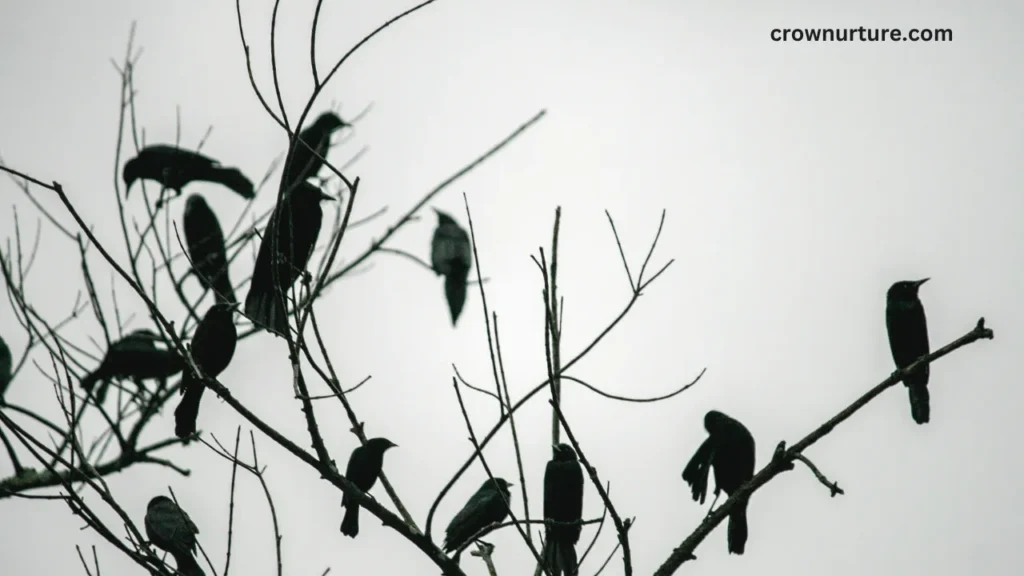
3. Legal Considerations
Crows are protected under laws like the Migratory Bird Treaty Act (MBTA) in the United States, which restricts the hunting or harming of migratory birds without special permits.
In some regions, specific exemptions allow crows to be hunted for pest control, but even then, the meat is rarely consumed due to public health concerns. Regulatory bodies often advise against eating wild birds that may carry diseases.
Before considering crow consumption, it’s crucial to check local wildlife laws to ensure compliance and avoid hefty penalties.
4. Ethical Implications
Hunting crows for food raises questions about animal welfare. Crows are highly intelligent and social creatures, capable of mourning their dead and forming close bonds. Killing them solely for food may seem unnecessarily cruel.
From an ecological perspective, large-scale hunting of crows could disrupt ecosystems where they play critical roles, such as scavenging and controlling insect populations. Such actions could lead to unintended environmental consequences.
Ethically, the idea of eating crows challenges our perceptions of which animals are considered food, sparking debates about cultural norms and individual choices.
5. Practical and Culinary Considerations
Even if one decides to eat crows, there are practical challenges. Crow meat is described as tough and gamey, requiring special preparation to make it palatable.
Additionally, proper cleaning and cooking techniques are essential to eliminate harmful bacteria or parasites. Without thorough preparation, consuming crow meat could pose significant health risks.
Finally, the effort required to prepare a crow meal may not justify the potential risks and unappealing taste, making it an impractical choice for most people.
Conclusion
While the idea of eating crows may spark curiosity, it is not a common or advisable practice for several reasons. The potential health risks from parasites, bacteria, and toxins make consuming crow meat unsafe in most cases.
Furthermore, cultural taboos, legal restrictions, and ethical concerns reinforce the perception that crows are better left alone.
Crows are intelligent, resourceful birds that play an important role in ecosystems as scavengers and pest controllers. Killing and consuming them not only disrupts these roles but also raises questions about our treatment of wildlife.
For those exploring alternative food sources, there are safer and more ethical options to consider. Ultimately, understanding the broader implications of eating crows highlights the importance of respecting these fascinating creatures and the ecosystems they inhabit.
FAQs
1. Are crows safe to eat?
Crows are not considered safe to eat due to potential risks of disease, parasites, and toxins from their scavenging habits.
2. Have people eaten crows in history?
Yes, crows have been eaten during times of famine or as part of survival strategies, but such instances are rare and not culturally widespread.
3. Are there legal restrictions on eating crows?
In many places, laws like the Migratory Bird Treaty Act prohibit killing or consuming crows without special permits.
4. What are the health risks of eating crows?
Consuming crow meat can expose you to diseases, parasites, and toxins, making it a potentially dangerous food source.
5. Can you hunt crows for food?
Hunting crows may be allowed in certain circumstances for pest control, but consuming the meat is not recommended.
6. Why don’t most people eat crows?
Cultural taboos, health risks, and the tough, gamey nature of crow meat make it an unappealing food choice
